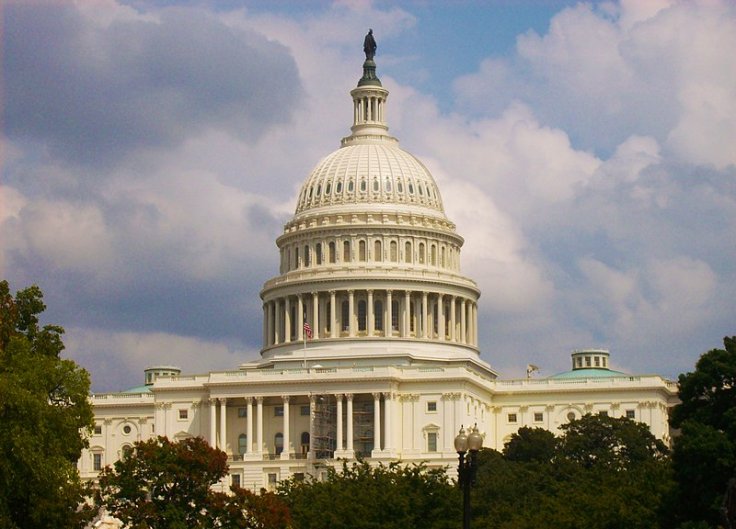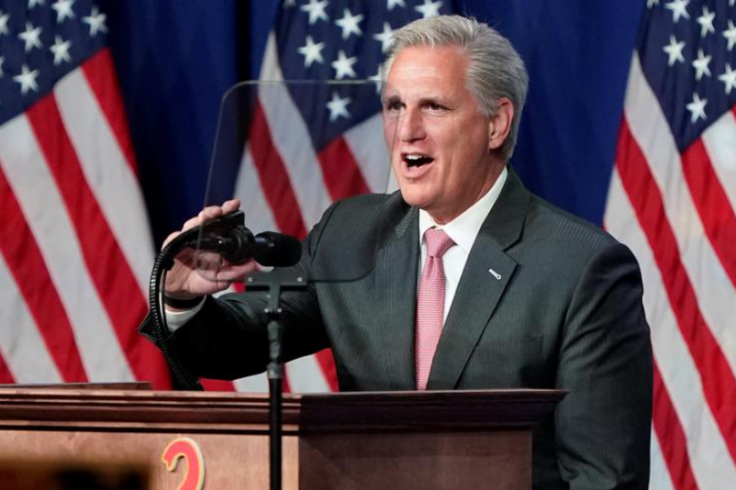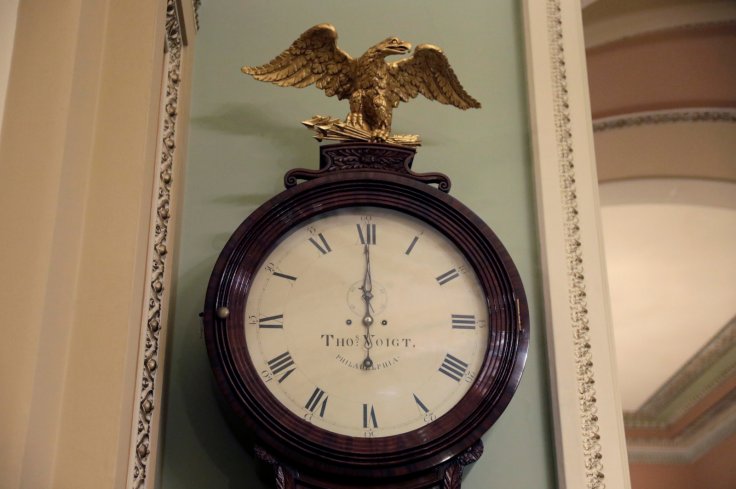As expected among the circles in Capitol Hill, the Republican-led US House of Representatives faced a major setback as they failed to approve a crucial one-month stopgap funding bill late Friday night.
The failure to pass this bill has cast a shadow of uncertainty over the federal government, with a shutdown looming on the horizon, set to take effect after midnight on Saturday.
The vote on the stopgap funding bill, which sought to keep the government funded temporarily, resulted in a significant defeat for House Speaker Kevin McCarthy. McCarthy had been grappling to gather enough support within the slim Republican majority, and his inability to rally his party behind the funding plan became evident as all Democrats and 21 Republicans voted against the measure, resulting in a 232-198 vote count.

Earlier on Friday, amidst opposition from both Democrats and some hardline Republicans, the lower chamber managed to clear a key procedural hurdle for the measure with a vote of 218-210.
However, even if the bill had received approval from House Republicans, it faced an uncertain fate in the Democratic-controlled Senate. The bill included provisions for deep spending cuts and border security measures, both of which were staunchly opposed by Democrats.
Traditionally, the House takes the lead on spending and revenue bills, but internal strife within the Republican Party had left the lower chamber paralyzed, necessitating action from the Senate in the final week before a potential shutdown.
In response to the deadlock in the House, a bipartisan Senate-proposed bill had been introduced earlier in the week, aiming to fund the government until November 17, just before Thanksgiving. This Senate bill maintained existing funding levels and allocated approximately $6 billion in aid for Ukraine, alongside $6 billion for disaster relief.

House Speaker expressed doubts about the Senate bill's prospects in the House, highlighting the rift within his party. Some conservatives in the House were critical of the bill, particularly regarding Ukraine aid, and they called for its inclusion within spending cuts. Additionally, the absence of border security provisions underscored the sharp partisan division on immigration policy.
Senate Majority Leader Chuck Schumer characterized this "continuing resolution" as a temporary solution to extend negotiations on a more comprehensive funding bill. Nevertheless, conservative Republicans were adamant about pursuing substantial spending cuts and were hesitant to support any stopgap measure.
Schumer also criticized McCarthy for adhering to the demands of the hard right within his party, warning that this approach could inevitably lead to a government shutdown. McCarthy, facing a challenging leadership situation, found himself compelled to engage with the right-wing faction of the Republican Party, given the slim majority, where even a few "rebels" could derail the legislative agenda.
Move to Remove McCarthy
Reports emerged of a group of far-right House Republicans contemplating an effort to remove McCarthy from his position as House Speaker as early as the following week, highlighting the internal discord within the GOP.

Greg Cusack, a former member of the Iowa House of Representatives and a long-time Democrat, expressed frustration at the current state of affairs, characterizing some elements within the Republican Party as "clowns and/or bomb-throwers" who seemed disinterested in governance. He pointed out the potential repercussions of a prolonged government shutdown on the mood of the electorate in the lead-up to the 2024 election.
Even Senate Minority Leader Mitch McConnell distanced himself from his House colleagues, attempting to isolate them to prevent any negative impact on the broader party's image ahead of the 2024 election. McConnell stressed that shutting down the government was not an effective means of making a political point. Republican Senator Joni Ernst lamented that Congress was not functioning as it should.
Shutdowns in the Past
This recent political deadlock leading to the possibility of a government shutdown is not an isolated incident. In recent years, growing partisan hostility has frequently resulted in government shutdowns. The most recent and extended shutdown occurred from late 2018 to early 2019 over funding for a US-Mexico border wall.
In 2013, during the Obama administration, conservative Republicans blocked the implementation of Obamacare, leading to a 16-day government shutdown.
Federal workers were informed on Thursday of the impending government shutdown, which would mark the 22nd in US history. During a government shutdown, non-essential government operations are suspended, and many federal employees are furloughed.
Moody's Investors Service issued a warning earlier in the week that a government shutdown could negatively impact America's top credit rating, signaling potential weaknesses in US institutions and governance compared to other AAA-rated sovereigns.
A protracted stalemate could also have adverse effects on the economy, with JPMorgan estimating that each week of government shutdown reduces GDP growth by 0.1 percentage point.
(With inputs from agencies)








